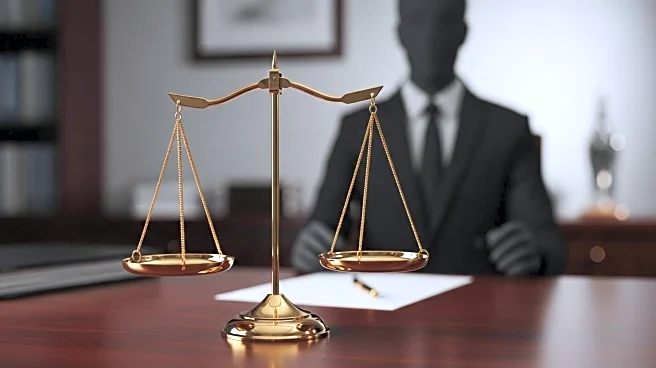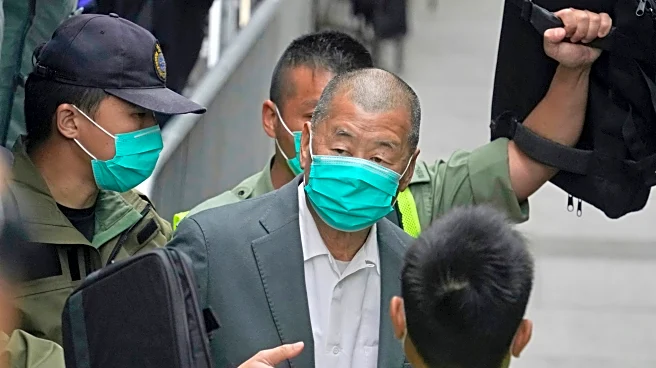What is the story about?
What's Happening?
Madhya Pradesh IAS officer Dr. Nagarjun B. Gowda is facing serious allegations of corruption and bribery from RTI activist Anand Jat. The accusations involve Gowda allegedly accepting a Rs 10 crore bribe from Path India, a mining company, to reduce a substantial penalty from Rs 51.67 crore to Rs 4000. The company is accused of illegally excavating murrum soil beyond permitted limits during construction work for the Indore-Betul Highway. Jat claims to possess photos, videos, and documents obtained through the Right to Information Act as evidence. Gowda, who served as Additional District Magistrate of Harda during the alleged incident, has denied these allegations, asserting that his decision was based on official documents and court records, and that he followed due process.
Why It's Important?
The allegations against IAS officer Nagarjun Gowda highlight potential issues of corruption within the administrative framework, which could undermine public trust in government institutions. If proven true, such actions could have significant implications for governance and accountability in the region. The case also underscores the role of RTI activists in bringing transparency and accountability to public administration. For the mining company involved, the allegations could lead to legal and financial repercussions, affecting its operations and reputation. The broader impact on public policy could involve stricter regulations and oversight on mining activities and administrative decisions.
What's Next?
As the allegations unfold, there may be further investigations by government authorities to ascertain the validity of the claims made by Anand Jat. Legal proceedings could be initiated if substantial evidence is found against Gowda or the mining company. The case might prompt discussions among policymakers regarding the need for enhanced transparency and accountability measures in administrative processes. Stakeholders, including civil society groups, may call for reforms to prevent similar incidents in the future.
Beyond the Headlines
The situation raises ethical questions about the integrity of public officials and the influence of corporate interests on administrative decisions. It also highlights the importance of the Right to Information Act as a tool for citizens to hold public officials accountable. Long-term implications could include a shift towards more stringent anti-corruption policies and increased public scrutiny of government actions.

















